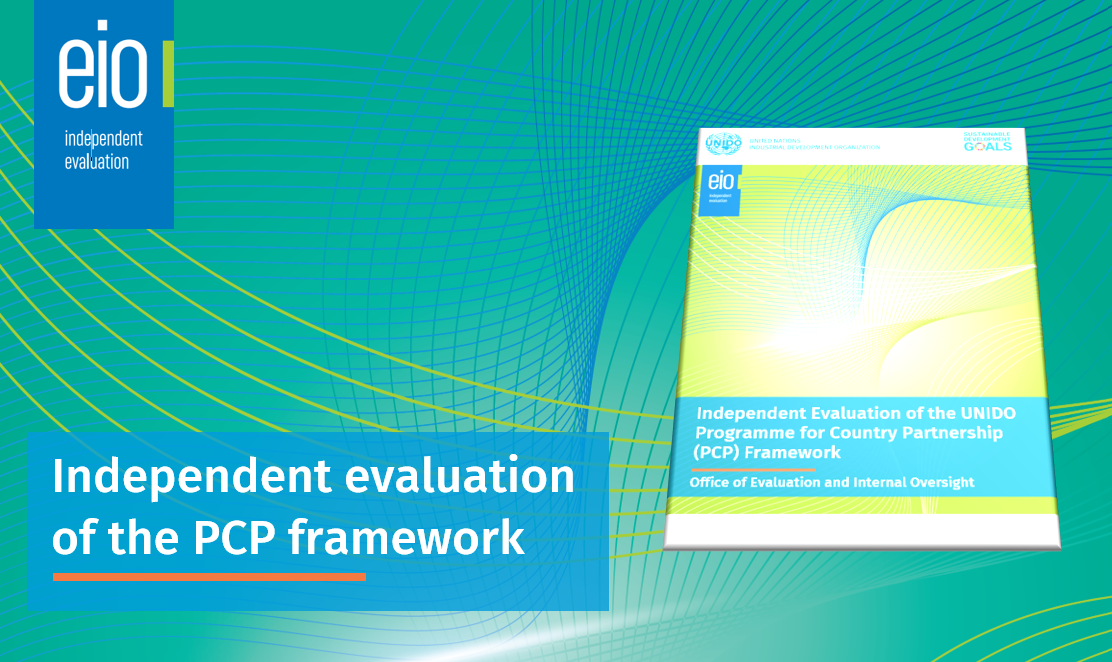

Independent evaluation of the Programme for Country Partnership (PCP) Framework

This independent evaluation, included in the 2022 Evaluation work plan of the Office of Evaluation and Internal Oversight (EIO), assessed the overall Programme for Country Partnership (PCP) framework of the United Nations Industrial Development Organization (UNIDO) and its effectiveness in achieving expected results. The evaluation provides inputs for UNIDO management on the PCP framework and its potential as a model for accelerating inclusive and sustainable industrial development in its Member States. The objectives of the evaluation were to assess the adequacy of the PCP framework to UNIDO’s mandate, the different roles and tasks of UNIDO within PCPs, and the adequacy of the PCP framework for UNIDO’s programming at the country level. The evaluation covered the period from 2014 to 2022 and used standard UNIDO evaluation criteria as well as cross-cutting criteria such as gender equality and social and environmental dimensions to assess the validity and success of the PCP framework.
UNIDO introduced the Programme for Country Partnership (PCP) approach in 2014, in response to the 2013 Lima Declaration. The PCP model aims to accelerate industrial progress in countries by aligning with national development agendas and strategies and focusing on high-growth potential sectors. Through multi-stakeholder partnerships led by host governments, PCPs aim to leverage additional investment in priority sectors to achieve a larger development impact. The PCP model serves as a means of operationalizing UNIDO’s mandate and contribution to achieving SDG 9 and to the 2030 Agenda for Sustainable Development.
The UNIDO PCP approach has the potential to be effective in contributing to industrial development agendas in countries, but it depends on strong national ownership and commitment. National commitment needs to go beyond political support and be also demonstrated by financial and human resources allocation in national counterpart institutions. Challenges include confusion of PCPs with traditional Country Programmes, limited engagement with the private sector, and the need for better monitoring and reporting. While the PCP approach has demonstrated its potential for scaling up, it is resource intensive and therefore not sustainable in its current form.